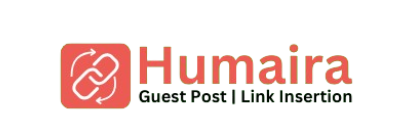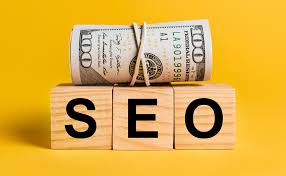Artificial Intelligence (AI) has transformed the way businesses optimize their websites for search engines. On-page SEO, which involves optimizing individual web pages to improve rankings and drive organic traffic, has become more efficient and effective with the help of AI tools and strategies. From content optimization to analyzing user behavior, AI empowers marketers to streamline their processes, boost engagement, and improve search engine rankings.
In this article, we will explore how AI can be leveraged for on-page SEO, the tools available, and actionable steps to implement AI-driven strategies.
What Is On-Page SEO?
On-page SEO focuses on optimizing various elements of a webpage to make it more search-engine-friendly and user-friendly. These elements include:
- Content quality and relevance
- Keywords and meta tags
- Internal linking
- Image optimization
- Page speed and mobile usability
AI simplifies and enhances the optimization process by providing data-driven insights, automating repetitive tasks, and improving decision-making.
How AI Enhances On-Page SEO
- Content Creation and Optimization
AI tools like ChatGPT, Jasper, and Writesonic assist in generating high-quality, SEO-optimized content. These tools analyze your target audience and keywords to create engaging and relevant articles, blogs, and product descriptions.- Keyword Integration: AI tools identify and recommend primary and secondary keywords, ensuring optimal keyword density and placement without keyword stuffing.
- Content Gap Analysis: AI analyzes competitor content and identifies topics or keywords your website is missing, enabling you to create comprehensive, high-ranking content.
- Title and Meta Tag Optimization
Writing compelling titles and meta descriptions is essential for improving click-through rates (CTR). AI tools like SEMrush, Surfer SEO, and Yoast SEO generate optimized suggestions for titles, meta descriptions, and headers.- AI ensures these elements are not only keyword-rich but also persuasive, increasing the likelihood of users clicking on your content in search results.
- Improving Readability
AI-powered platforms such as Grammarly and Hemingway Editor analyze your content’s readability and tone, suggesting improvements to make your content more accessible and engaging for readers. Enhanced readability can lead to longer dwell times, a positive signal for search engines.
AI Tools for On-Page SEO
- Surfer SEO
Surfer SEO helps optimize content by providing data-driven recommendations for keywords, headings, and word count. It compares your page against top-ranking competitors and suggests improvements to align with search intent. - MarketMuse
MarketMuse is ideal for content research and optimization. It uses AI to analyze your content and identify areas for improvement, such as missing topics or weak keyword usage. - Clearscope
Clearscope uses AI to provide keyword and content optimization recommendations. It generates keyword variations and related topics to ensure comprehensive coverage of a subject. - ChatGPT or GPT-4
These AI tools assist in creating content outlines, generating engaging text, and even writing complete articles optimized for your target keywords. - Google Bard and AI-Powered Analytics
AI-driven analytics tools provide insights into user behavior and page performance, helping refine your on-page SEO strategies.
Steps to Use AI for On-Page SEO
- Conduct Keyword Research Using AI
Start by using AI tools like Ahrefs, SEMrush, or Google’s Keyword Planner to identify high-volume and low-competition keywords. AI can also suggest long-tail keywords that match user intent, making your content more relevant and likely to rank. - Generate Content Ideas
AI analyzes trends, competitor content, and audience behavior to suggest topic ideas that resonate with your audience. These tools can even identify evergreen topics to drive long-term traffic. - Optimize Content for Search Intent
Search intent (informational, transactional, or navigational) plays a critical role in ranking. AI tools like Frase and MarketMuse help you align your content with the user’s search intent, improving your chances of ranking higher. - Enhance On-Page Elements
- Titles and Meta Descriptions: Use AI to generate click-worthy titles and descriptions, incorporating primary and secondary keywords naturally.
- Internal Linking Suggestions: Tools like Link Whisper suggest internal links to improve site navigation and distribute link equity effectively.
- Header Optimization: AI tools analyze your headings and suggest modifications to ensure proper hierarchy and keyword inclusion.
- Optimize for Voice Search
Voice search is growing in popularity, and AI can help you optimize content for voice queries. Tools like AnswerThePublic generate conversational keywords and phrases commonly used in voice searches. - Image and Multimedia Optimization
AI tools like TinyPNG and Adobe Sensei optimize images for faster loading without compromising quality. Alt text generation tools ensure your images are accessible and contribute to SEO rankings. - Analyze User Behavior with AI
Tools like Hotjar and Crazy Egg use AI to track user behavior on your website. These insights help identify areas where users drop off, allowing you to optimize page elements for better engagement and retention. - Automate A/B Testing
AI simplifies A/B testing by analyzing the performance of different versions of a webpage. This helps you determine which design, content, or call-to-action elements work best for your audience.
Benefits of Using AI for On-Page SEO
- Saves Time and Effort
AI automates repetitive tasks like keyword research, content creation, and optimization, freeing up time for strategic decision-making. - Provides Data-Driven Insights
AI tools analyze vast amounts of data to provide actionable insights, improving the accuracy and effectiveness of your SEO efforts. - Improves User Experience
By optimizing readability, layout, and multimedia elements, AI enhances the overall user experience, which indirectly boosts SEO rankings. - Adapts to Algorithm Changes
AI tools stay updated with the latest search engine algorithm changes, ensuring your SEO strategies remain effective.
Challenges and Limitations of AI in On-Page SEO
While AI is a powerful tool, it has its limitations:
- Lack of Human Creativity: AI-generated content may lack the creativity and emotional appeal of human-written content.
- Initial Costs: Many advanced AI tools require subscriptions, which might be expensive for small businesses.
- Over-Reliance: Overusing AI may lead to generic content that fails to stand out in competitive markets.
To overcome these challenges, combine AI with human creativity and expertise to achieve the best results.
Conclusion
AI has revolutionized on-page SEO by streamlining processes, offering actionable insights, and improving website performance. From optimizing content to analyzing user behavior, AI empowers businesses to stay competitive in search engine rankings.
However, AI should be used as a tool to complement human expertise, not replace it. By integrating AI-driven strategies with your SEO efforts, you can create a website that ranks well, engages users, and drives sustainable organic growth.

